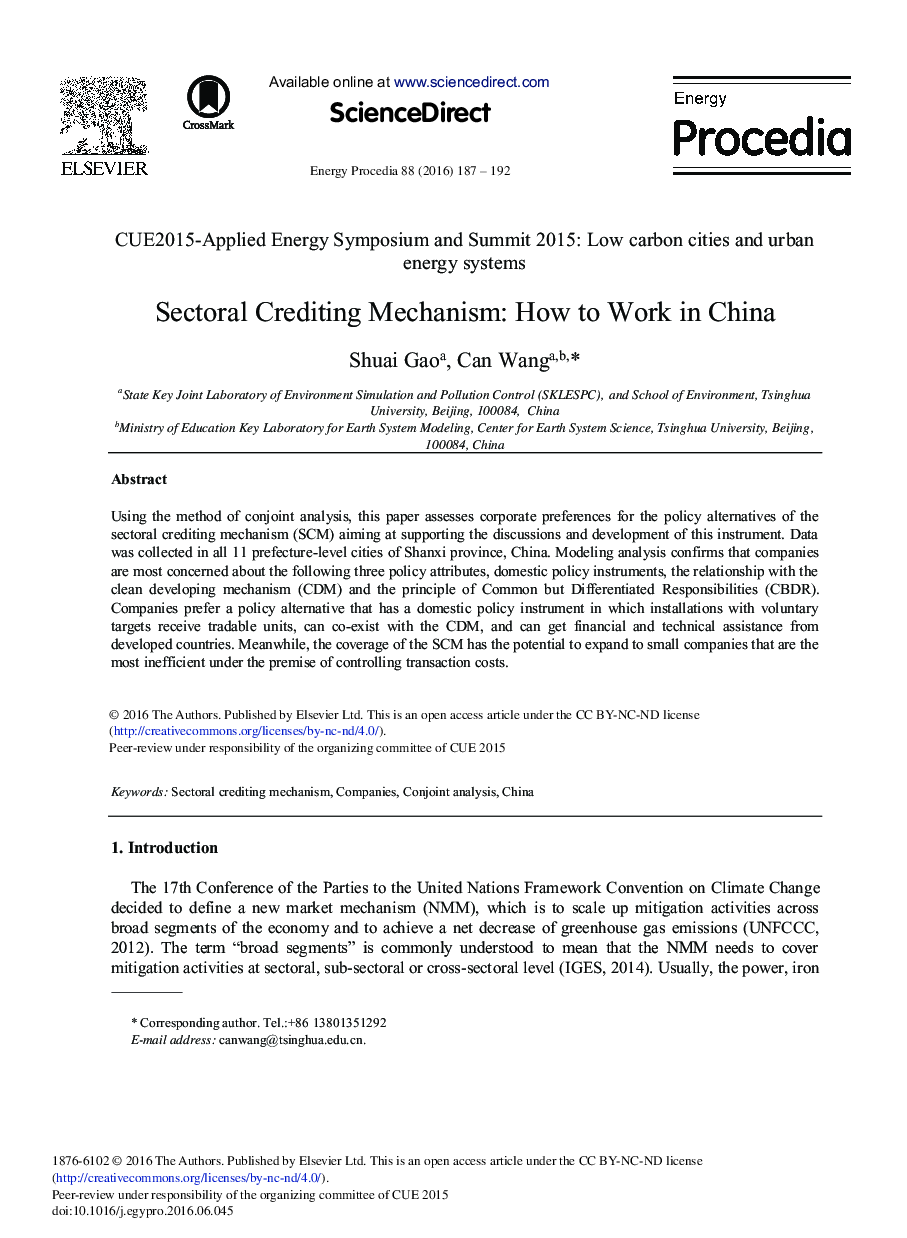| Article ID | Journal | Published Year | Pages | File Type |
|---|---|---|---|---|
| 1508803 | Energy Procedia | 2016 | 6 Pages |
Using the method of conjoint analysis, this paper assesses corporate preferences for the policy alternatives of the sectoral crediting mechanism (SCM) aiming at supporting the discussions and development of this instrument. Data was collected in all 11 prefecture-level cities of Shanxi province, China. Modeling analysis confirms that companies are most concerned about the following three policy attributes, domestic policy instruments, the relationship with the clean developing mechanism (CDM) and the principle of Common but Differentiated Responsibilities (CBDR). Companies prefer a policy alternative that has a domestic policy instrument in which installations with voluntary targets receive tradable units, can co-exist with the CDM, and can get financial and technical assistance from developed countries. Meanwhile, the coverage of the SCM has the potential to expand to small companies that are the most inefficient under the premise of controlling transaction costs.
